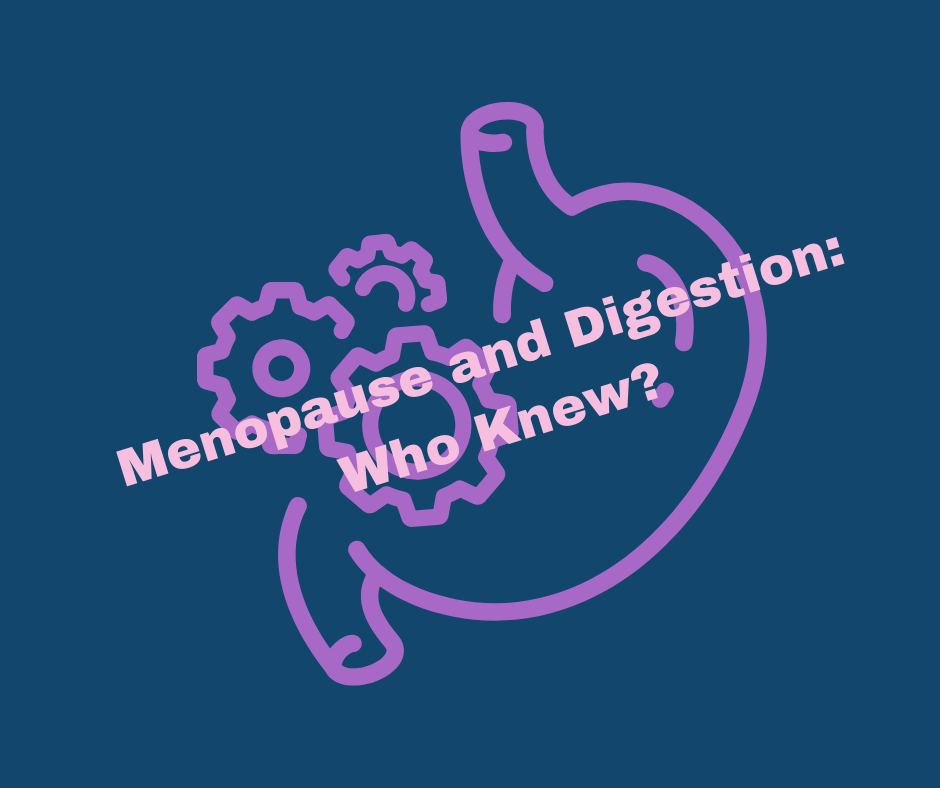Menopause and Digestion: Who knew?
Most people would associate menopause symptoms with mood swings, night sweats, hot flushes etc., me included. However, reflux and digestive issues were one of the first signs for me (looking back). In the beginning, I was constantly nauseous to the point I thought I was pregnant again (the only way I could describe it was like the morning sickness I used to suffer with my daughter – basically all day, every day until she was born). I’m not sure what was worse, the thought of being pregnant again or being peri-menopausal 😊. Once we established that I wasn’t pregnant, then we went down other routes. Eventually, I was put on a reflux medication (which helped a little bit) and advised to reduce my carb intake (which helped more).
Oestrogen has a significant role in maintaining the health of the gastrointestinal tract. When a woman goes through menopause, as you know, her Oestrogen levels decrease, and this can have an impact on digestive health. Your digestion can become sluggish which can lead to bloating, constipation, and discomfort. Decreasing levels of oestrogen can change the makeup of gut bacteria leading to gut issues and, what happened to me, the beginning of acid reflux. My acid reflux got so bad (especially after eating wheat) that I nearly passed out from the pain. Fluctuations in hormone levels can cause women to be more sensitive to some foods. I’ve also found that I can no longer tolerate several foods that I used to eat with no problem. And then obviously the one we all complain about, weight gain (although I think mine has more to do with all the tasty but non-nutritious foods I’ve been eating 😊). Our metabolism slows down which can cause weight gain which in turn can lead to more digestive issues.
So, you ask, what can we do about it? Well, we can modify our diets to include more fibrous foods like whole grains, fruits, and vegetables to get our digestion moving again. Staying hydrated and exercising can also have a positive impact. Along with stress management and possibly some supplements. However, the most important thing to do if you are suffering in this way is to consult your GP. A medical practitioner is the best person to advise on how to move forward in a safe way.
Please also remember that we are all different and suffer very differently from woman to woman. What works for one may not work for another. This is why it is so important for perimenopause/menopause to be openly discussed amongst friends, family, and peers. What you may not recognise as a symptom, may be exactly what someone else is suffering from.

